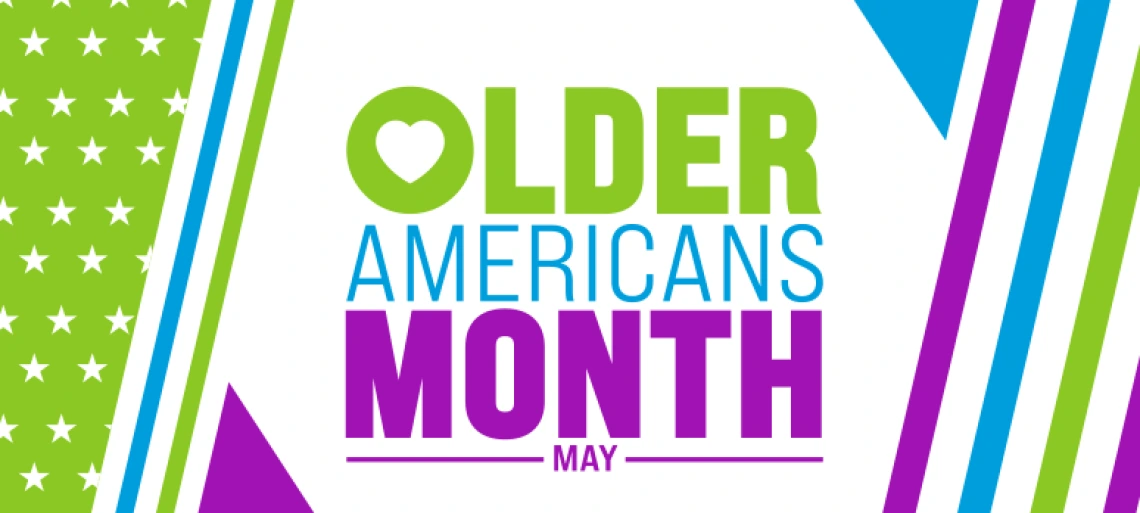
In celebrating both Mental Health Awareness Month and Older Americans Month, we recognize that quality of life in our later years are about creating communities where emotional wellbeing, purpose, and dignity remain accessible to everyone regardless of age or mental health status . Stigma can prevent people from seeking help and may cause healthcare providers to overlook potential mental health issues. Many people (caregivers, healthcare providers, and older adults themselves) mistakenly believe that feeling depressed or anxious is an expected part of growing older. Older adults experience depression and anxiety less frequently than younger people do. Despite this, mental health concerns in older adults often go unaddressed. A Substance Abuse and Mental Health Services Administration (SAMHSA) study shows that while 12.5% of adults over 60 experience mental health challenges annually, less than half receive any treatment. This gap exists because symptoms may be perceived as a normal part of aging rather than recognized as treatable conditions warranting attention.
Older Adults Can and Do Benefit from Mental Health Support
Another common misconception is that older adults are too set in their ways to benefit from therapy or other mental health interventions. Studies show that mental health treatments work just as effectively for older adults as they do for younger people. For example, those who participate in substance use treatment programs (yes, older adults also contend with substance abuse issues) often have better completion rates than younger adults. The really good news about aging and mental health? Resilience—our ability to bounce back from hardship—typically strengthens with age. Many older adults exhibit greater resilience than younger individuals, contributing to improved health outcomes and a higher quality of life. This natural enhancement of coping abilities highlights that later life can be a time of continued psychological growth rather than (potentially ageist references like) "vulnerability," "frailty," and "decline."
Challenges and Opportunities to Access Mental Health Services for Older Adults
There are realistic challenges for older adults in accessing mental health care. Transportation, insurance coverage, and the availability of navigating mental health services support concerns, and technology need to be part of the equation of mental health support for older adults. While we are still reeling from the mental health impact of COVID-19 on every generation's mental health, social isolation and loneliness continues to play a critical role in the mental health of older adults. With the lens of myths of ageism, loneliness isn't just an older adult issue—it affects people across generations. Young adults ages 18-22 report the highest loneliness scores, with college students particularly vulnerable. The health impacts are severe for everyone: loneliness can be as damaging as smoking fifteen cigarettes daily and increases the risk for cardiovascular disease, dementia, and depression.
Improving mental health care for older adults requires multiple approaches, including more routine mental health screenings in primary care settings, expanded telehealth options, age-friendly services, and programs that foster intergenerational connections. By challenging ageist assumptions and creating accessible pathways to care, older adults receive the mental health support they deserve while celebrating their resilience and capacity for continued growth throughout life.
Resources for Mental Health Support for Older Adults and Family Caregivers
- SAMHSA (Substance Abuse and Mental Health Services Administration). Resources for Older Adults.
- National Council on Aging: Mental Health Resources and Support
- National Institute of Mental Health (NIH) Older Adults and Mental Health
- 988 Suicide and Crisis Lifeline
- Veterans’ Crisis Line
- AARP: Caregiving Resources in Your State
- Mental Health America

